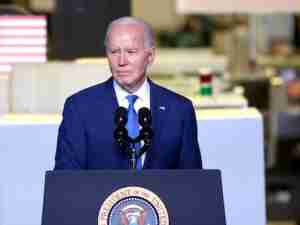The World Trade Organization’s new leader pledged to shake up the Geneva-based trade body, but Ngozi Okonjo-Iweala’s first speech as director-general stopped short of offering details into how she’d change the way the WTO has operated for years.
Okonjo-Iweala—who ran on a campaign as an outsider to Geneva’s community of trade experts—said members must focus on improving the lives of ordinary people and creating decent jobs for those who seek work.
“It cannot be business as usual,” she said in remarks published on the WTO’s website. “We have to change our approach from debate and rounds of questions to delivering results.”
Okonjo-Iweala’s initial approach to changing the WTO, however, mirrored her predecessor’s method of prioritizing discussions on low-hanging fruit for agreement at the WTO’s ministerial conferences while pursuing “interim solutions” and “work plans” for longer-term debate on more divisive issues.
The 66-year-old developmental economist is just getting started on plans to reform the beleaguered trade body, which has failed to update its rulebook to address many of the important changes that have occurred in the global trading system over the past 25 years, including China’s economic rise and the development of the digital economy.
The WTO struggled to maintain its relevance over the past four years as it was sidelined by President Donald Trump’s unilateral trade actions against China and other major trading partners.
The Trump administration accelerated the WTO’s crisis in 2019 when it opposed all new appointments to the organization’s seven-member appellate body, saying it had overstepped its mandate.
‘Systemic Concerns’
The Biden administration last week said it would not agree to appoint new members to the body because the U.S. “continues to have systemic concerns” with the functioning of the panel.
Okonjo-Iweala has already begun to temper expectations about overhauling the WTO appellate body, and told Bloomberg that the U.S. has “valid concerns” that need to be addressed.Separately on Monday, Okonjo-Iweala did not endorse India and South Africa’s call to waive intellectual-property protections for Covid-19 vaccines under the so-called TRIPS agreement. She said members should instead focus on a short-term approach that encourages pharmaceutical companies to offer licenses to increase vaccine manufacturing sites in emerging markets and developing countries.
“We must get them to work with us on know-how and technology transfer now,” Okonjo-Iweala said. “This will be an interim solution whilst we continue the dialogue on the TRIPS waiver.”








